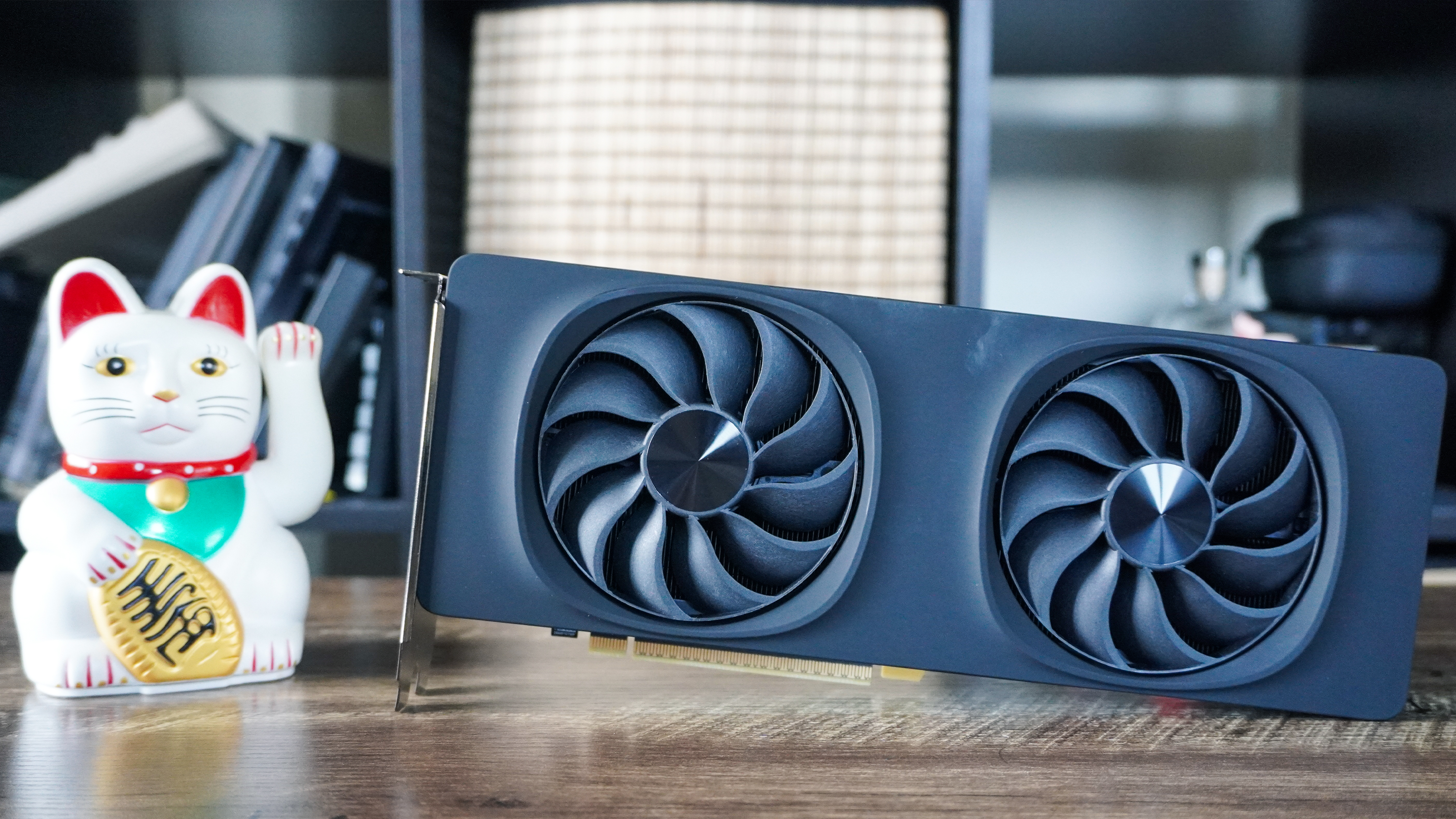AI mattress or smart bed — is there a difference?
The same plush features but different ways of working — should you buy an AI mattress or smart bed?
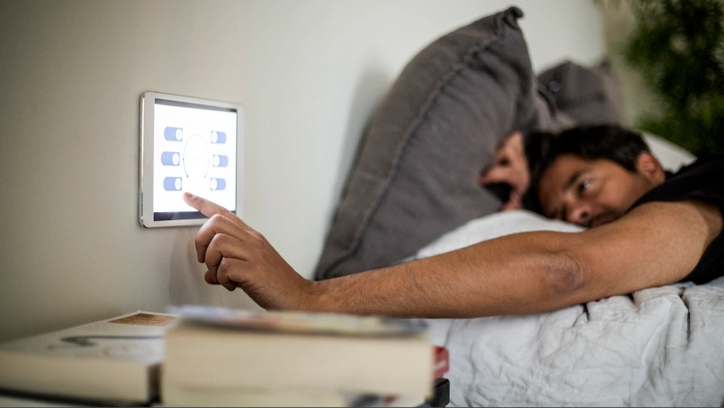
We already spend the day tapping on a smartphone, monitoring our health on a smartwatch and interacting with various smart home products. Now our sleep is making technical leaps too.
Like many of this year’s best mattresses for all sleepers, AI mattresses and smart beds come with many plush features and benefits to help improve your sleep quality. In the ever-evolving world of AI, the difference between smart beds and AI mattresses can seem like a bit of a grey area.
In a nutshell, smart beds and mattresses offer similar features, but the way they work is different. Read on to find out how we distinguish between the two and which one we recommend you buy.
What is a smart bed?
Smart beds are designed to track your sleep and various aspects of your health. Some smart beds — like the Eight Sleep Pod 4 — are bases or covers designed to work with your existing mattress. Others are mattresses with integrated smart functionality — like the Saatva Solaire and Sleep Number i8 Smart Bed.
Working to improve your sleep quality and quantity, they track your heart rate, breathing, body temperature, movement and sleep cycles. They can also calculate your bedtime, wake-up time and sleeping position and provide personalized sleep reports.
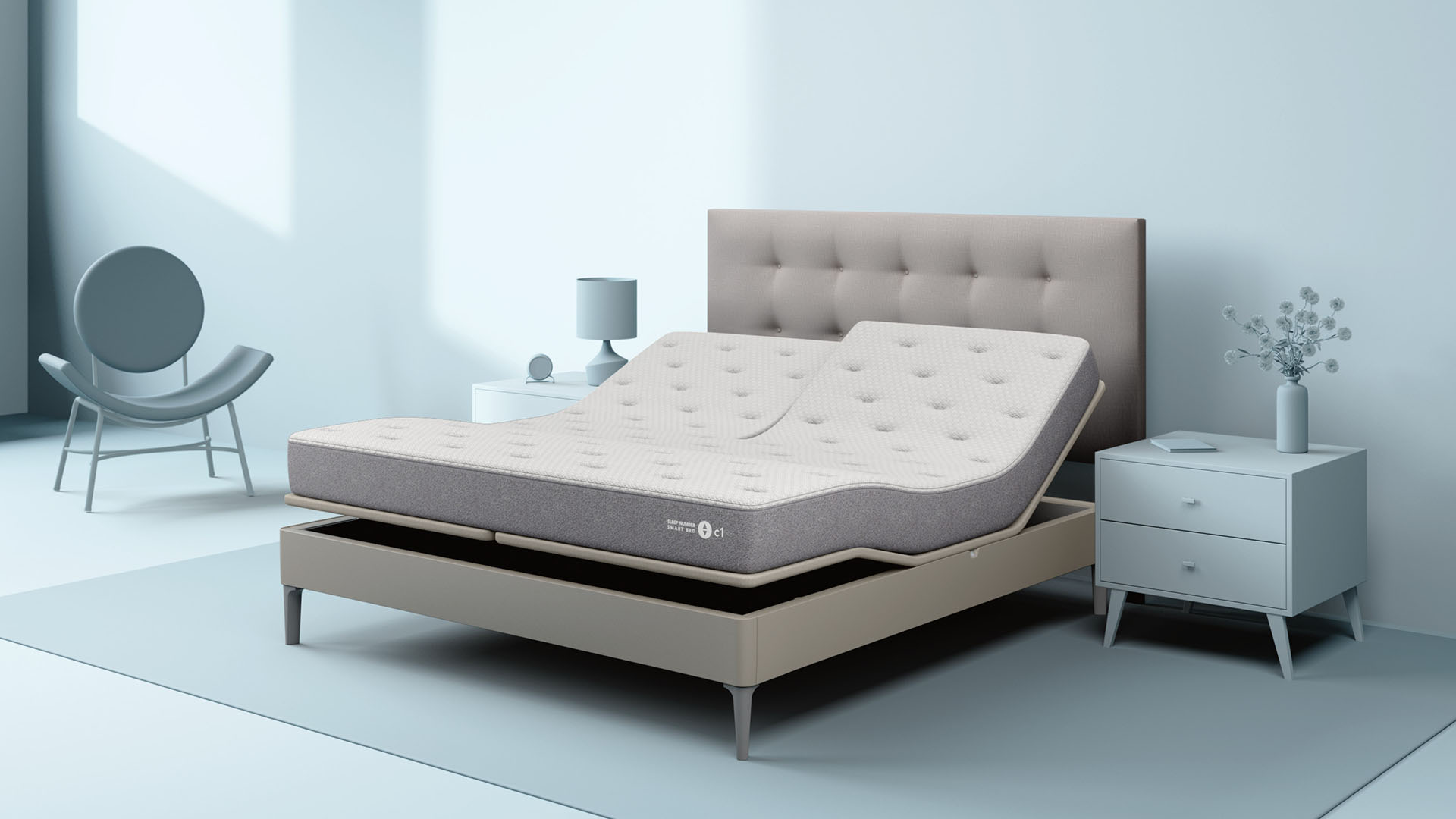
Smart beds are either fully app-controlled, remote-controlled or use a mix of both, offering manual mattress customization. You can adjust the firmness and feel of your mattress via its control panel or app.
Furthermore, most advanced smart beds, and all AI mattresses, automatically adjust your position throughout the night depending on movement and breathing. For example, they will detect your lumbar spine’s curvature and adjust to give you the best lumbar support and alter your head position for easier breathing if snoring is detected.
Get instant access to breaking news, the hottest reviews, great deals and helpful tips.
Some can be programmed to the exact temperature that helps you fall asleep faster and deeper, and Eight Sleep is one of the best brands for this — especially if you want a smart bed with independent heating and cooling.
- Read more: Is the Eight Sleep Pod 4 worth it? We tested the smart cooling mattress cover to find out
What is an AI mattress?
AI mattresses have all the plush features of a smart mattress, but the way they are programmed is slightly different. AI mattresses use artificial intelligence and sensors to improve sleep quality, alongside machine learning which means it can learn and adapt to your sleep needs, rather than relying on pre-programmed systems.
To make it even more confusing, not all AI mattresses are actually mattresses. For example, Tempur-Pedic’s Tempur-Ergo Power Base — which isn’t a mattress but a bed base — uses AI sleep tracking to provide daily insights into your sleep patterns and habits. The brand’s Sleeptracker-AI provides personalized sleep coaching via their app.
Other brands, such as HEKA, offer mattresses integrated with AI systems, complete with the comforting, cooling and supportive layers of traditional mattresses.
What are the key differences between a smart bed and an AI mattress?
- All AI mattresses are smart beds but not all smart beds are AI mattresses
- AI mattresses work on an algorithm and self-learning
- Smart mattresses are pre-programmed
The two terms — smart bed and AI mattress — are used interchangeably making it difficult to distinguish between the two. Essentially, all AI mattresses are smart beds but not all smart beds use AI.
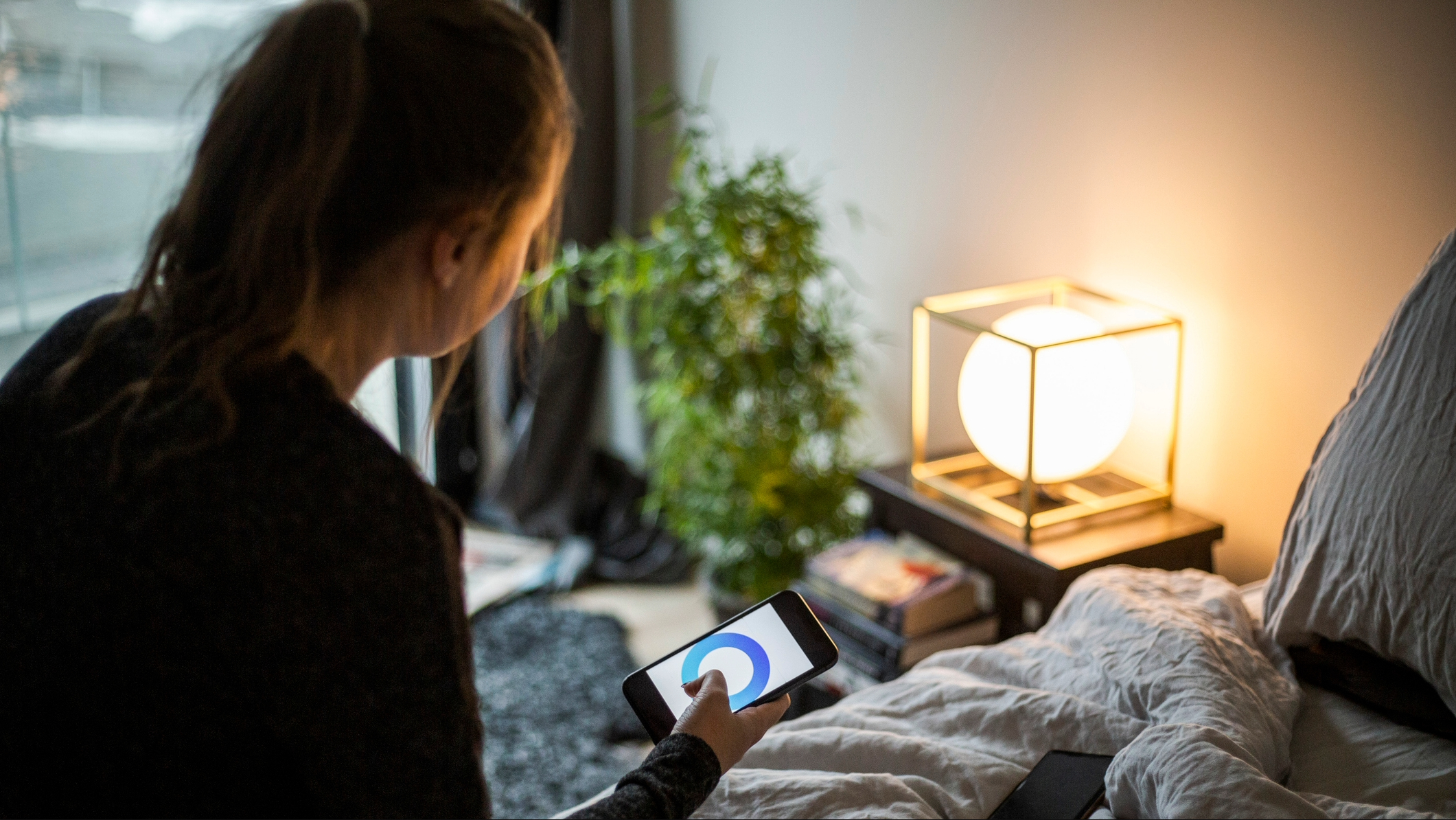
Data Science Central’s distinction between intelligent systems and artificial intelligence can help us understand the difference between smart beds and AI mattresses.
According to digital marketing specialist Larry Alton, “Computers that are authentically utilizing AI technology [i.e. AI mattresses] are taught to think and learn for themselves, just like humans.”
Alton adds: “Intelligent systems [i.e. smart beds] work with patterns just like AI, except intelligent systems don’t have the deep neural networks that support self-learning.”
Can smart beds also use AI?
Some smart beds use AI, too, so there is often an overlap between smart beds and AI mattresses. Type ‘AI mattresses’ into Google and a plethora of smart beds will come up — or air beds, thanks to auto-correct.
While many smart beds use AI to analyse sleep and produce personalized reports, beds can be smart without AI interference. Smart beds without AI have different selling points such as adjustable firmness and temperature control.
Steering clear of AI, the Saatva Solaire instead offers 50 firmness settings on each side of the bed, controlled via a remote rather than a companion app. This makes it a good mattress option for restless sleepers looking for strong pressure relief without all the tech. Similarly, Tempur-Pedic’s Tempur-Breeze cooling beds over temperature control without AI.
Ultimately, all AI mattresses are smart beds, but not all smart beds are AI mattresses.
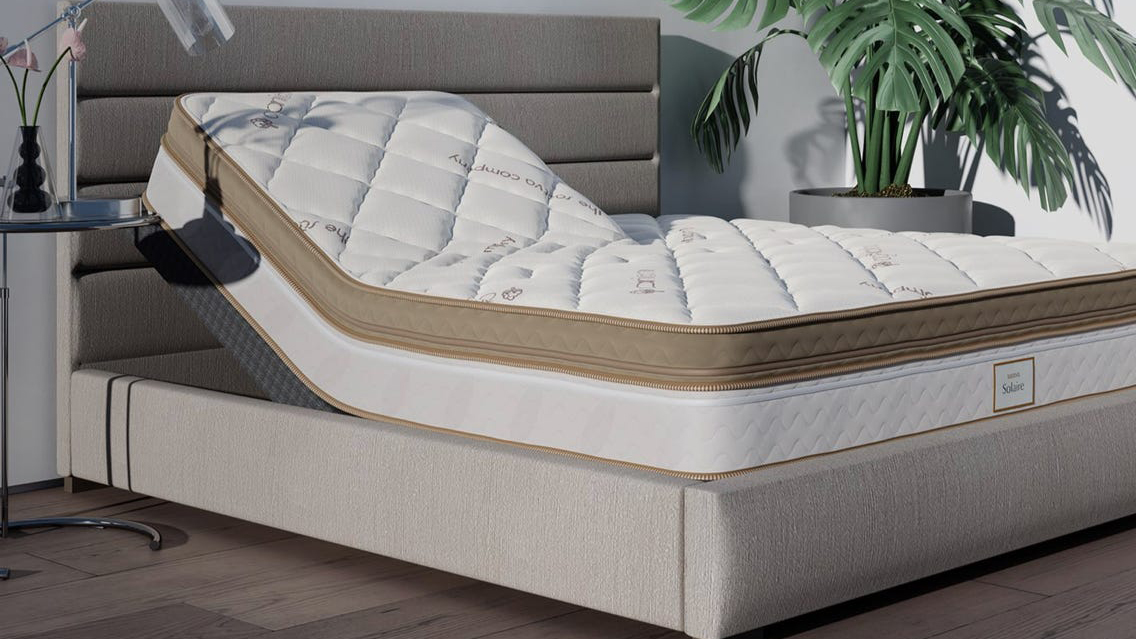
Should you buy an AI mattress or smart bed?
Buy an AI mattress if...
✅ Your snoring is disturbing your partner (Or vice versa): AI mattresses use sensors to detect snoring and alter your sleeping position for easier, quieter breathing.
✅ You want to learn more about your sleep: Perfecting your sleep routine requires work and knowledge. Mattresses with AI sleep tracking help you understand what’s happening to your body overnight, and offer solutions to fix any sleep problems.
✅ You’re worried about sleep apnea: Thanks to their ability to measure your breathing and heart rate while you sleep, AI mattresses can help you detect and monitor sleep apnea, where you temporarily stop breathing during the night.
Buy a smart bed if…
✅ Your priority is temperature control: You can get smart beds that offer personalized climate control without AI sleep tracking.
✅ You suffer with back, neck or hip pain: Smart beds with adjustable firmness help ease tension in pressure points while you sleep.
✅ You’re concerned about privacy: Unlike AI mattresses that track everything from your sleep position to heart rate and hold personal data and information in associated apps, smart beds can be controlled solely through a remote control.

Eve is a sleep tech product tester and writer at Tom's Guide, covering everything from smart beds and sleep trackers, to sleep earbuds and sunrise alarm clocks. Eve is a PPA-accredited journalist with an MA in Magazine Journalism, and has four years’ experience writing features and news. In her role as Sleep Tech Product Tester and Writer for Tom's Guide, Eve is constantly trying out and reviewing the latest sleep products from brands such as Apple, Garmin, Whoop, Hatch, Sleep Number, Eight Sleep, and Oura. A fitness enthusiast who completed the London Marathon earlier this year, Eve loves exploring the relationship between good sleep, overall health, and physical performance, and how great sleep tech can make that relationship even better.
 Club Benefits
Club Benefits





